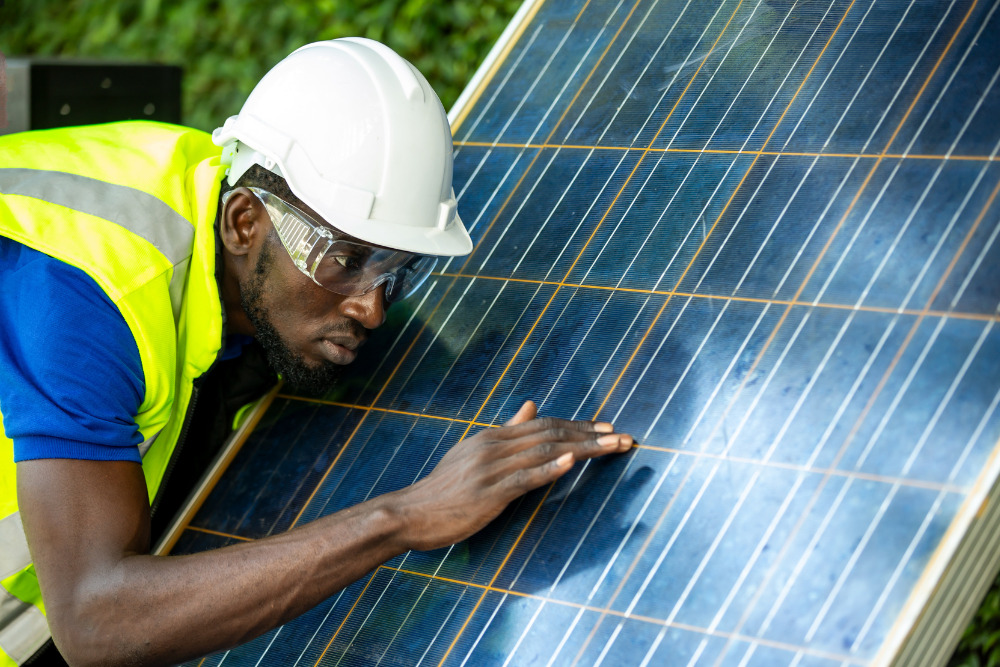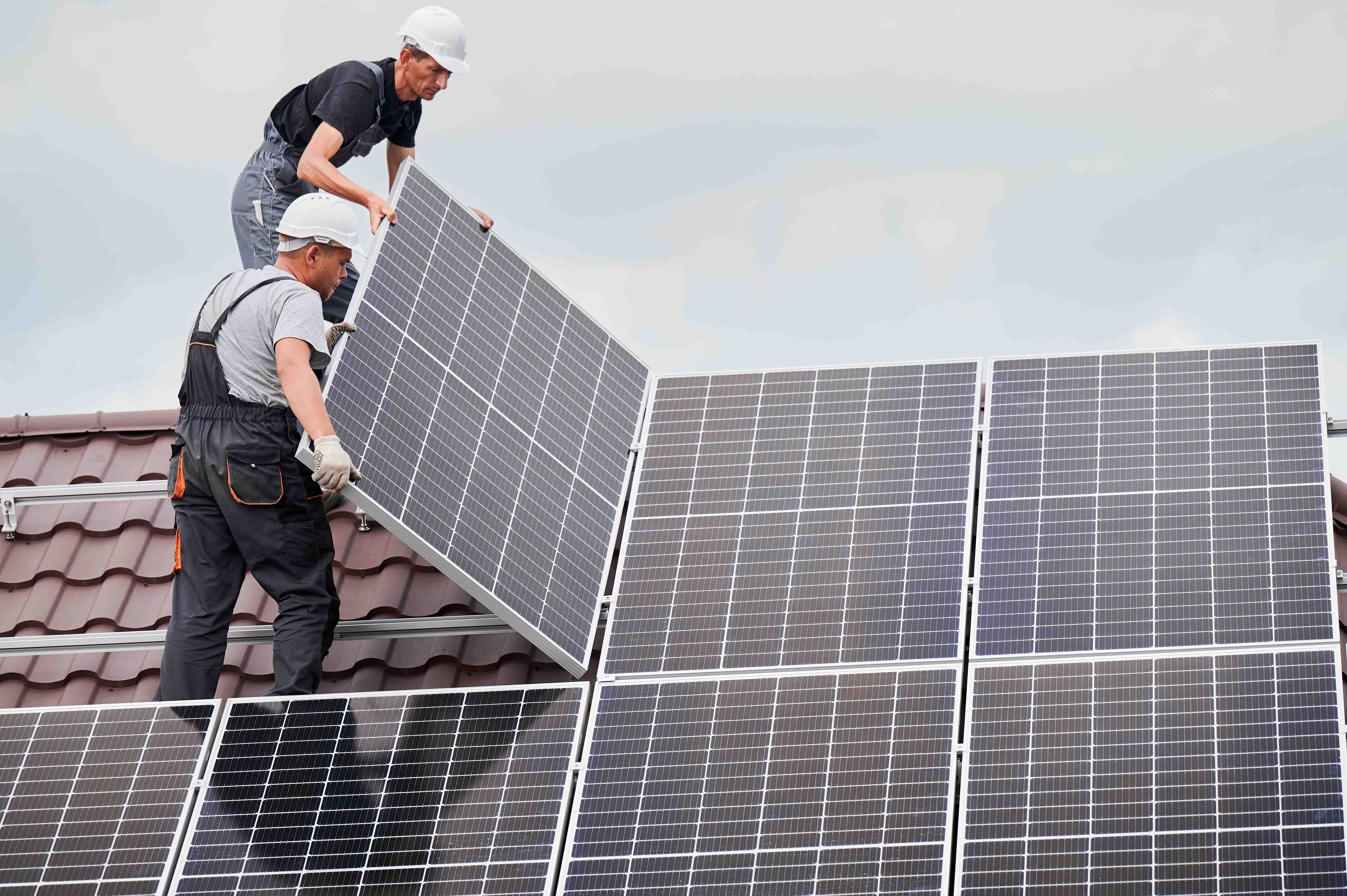Exactly How to Pick the Right Solar Energy Installment for Your Power Requirements
Picking a suitable solar power installment calls for a methodical approach that starts with a clear understanding of your power consumption patterns and expected future demands. Aspects such as the kind of solar innovation, installment expenses, and available motivations play crucial duties in making an educated choice - solar photovoltaic. The option of a qualified installer can not be neglected, as their competence can dramatically influence the performance and long life of your system. As you consider these factors to consider, you might discover that the ideal path is not always one of the most obvious one.
Assess Your Energy Demands
Assessing your power requires is a crucial primary step in the solar energy setup process. Comprehending your current and future energy consumption will certainly guide the style of a reliable planetary system customized to your requirements. Begin by analyzing your energy costs from the past year to identify your ordinary month-to-month power usage, typically determined in kilowatt-hours (kWh) This information will provide a structure for computing the dimension of the planetary system you might require.
Take into consideration seasonal variants in energy usage, as specific months might require even more power because of heating or cooling demands. Additionally, assess any kind of scheduled changes in way of life or home, such as the purchase of electrical vehicles or home growths, which might enhance your power demands in the future.
As soon as you have a comprehensive understanding of your power intake, you can figure out the ideal solar ability required to fulfill those requirements. This evaluation not only helps in sizing the solar setup but likewise educates choices about energy storage space solutions and potential grid link requirements. solar photovoltaic. Eventually, properly determining your power needs ensures that your solar power system operates effectively, delivering the benefits of sustainable power in positioning with your consumption patterns

Evaluate Solar Technology Options
When thinking about a solar power setup, it is necessary to evaluate the numerous solar innovation choices offered to make sure the system straightens with your energy requirements and budget plan. The main modern technologies include monocrystalline, polycrystalline, and thin-film photovoltaic panels, each offering distinctive benefits and disadvantages.
Monocrystalline panels are understood for their high efficiency and performance in minimal room, making them suitable for domestic installments with less roof location. They have a tendency to be extra expensive. Polycrystalline panels, while a little much less effective, are typically a lot more affordable and can be a great selection for bigger installments where space is not a restriction. Thin-film solar panels are lightweight and flexible, optimal for non-traditional surface areas, but they typically have lower effectiveness and call for more room to create the same power outcome.
In enhancement to panel kinds, think about solar inverters, which convert the straight current generated by the panels into alternating present for home usage. String inverters, microinverters, and power optimizers each have distinct advantages that can affect system performance. Evaluating these alternatives will help you make an educated decision that meets your power requirements efficiently.
Think About Installment Prices
Recognizing installation expenses is critical for any individual considering a solar energy system. These costs can vary significantly based on numerous variables, including system dimension, kind of panels, and setup intricacy. A typical household solar installation might range from $15,000 to $30,000 prior to rewards, which can be a significant ahead of time investment.
To precisely assess setup expenses, it is crucial to get in-depth quotes from several solar carriers. These quotes need to break down the prices of tools, labor, allows, and any extra accessories required for the setup. Pay close attention to the top quality of products being provided, as higher-quality panels and inverters can result in far better effectiveness and long life, potentially offsetting higher initial expenses.
Moreover, take into consideration the long-term implications of installment expenses. A less expensive installation could save money ahead of time but can bring about greater maintenance costs or decreased energy production over time. It is likewise advisable to evaluate funding choices, such as solar financings or leases, which can impact your total monetary commitment.
Research Resident Motivations
Exploring local rewards can substantially influence the total price of a solar energy installation. Numerous regions provide a selection of monetary incentives focused on advertising renewable resource use, making solar energy a lot more accessible and affordable for house owners and companies alike.
These rewards may include federal tax credits, state rebates, and neighborhood utility company programs that offer cash money incentives or web metering alternatives. For instance, the Federal Investment Tax Obligation Credit Score (ITC) allows you to subtract a significant percentage of your solar installment prices from your government tax obligations. State-specific rewards can better enhance these cost savings, typically in the kind of straight money refunds or tax credit scores.
In addition, some city governments may provide residential property tax exemptions for solar setups, guaranteeing that your investment does not boost your building tax liability. Researching these motivations can reveal considerable savings, which can affect your decision on the dimension and kind of planetary system to mount.

Pick a Trustworthy Installer
Choosing a respectable installer is critical to ensuring the success and longevity of your solar power system. The installation process significantly influences the efficiency and performance of your solar panels, making it necessary to select a professional with a proven performance history. Begin by researching regional installers through on the internet testimonials and testimonials. Internet sites such as the navigate to this website Better Service Bureau can provide understanding into consumer satisfaction and service integrity.
Next, verify the installer's credentials, including licenses, certifications, and insurance policy. A reputable installer should hold qualifications from recognized companies, such as the North American Board of Qualified Power Professionals (NABCEP), suggesting a high degree of proficiency. In addition, ask about the installer's experience with similar tasks, especially in your area, as local climate and regulations can affect installment methods.
Request numerous quotes and compare them not just on price yet likewise on the quality of equipment and guarantees used. A trustworthy installer must give transparent details about their services and products, assisting you make an educated decision. By investing time in picking a credible installer, you will boost the overall efficiency and toughness of your solar energy system.
Final Thought
Finally, choosing the appropriate solar energy setup requires a complete evaluation of energy needs, an understanding of available solar technologies, and a cautious Recommended Site factor to consider of installment expenses. Checking out local incentives can boost economic benefits, while choosing a trusted installer ensures top quality handiwork and reliability. solar photovoltaic. By carefully assessing these factors, individuals can achieve an optimal solar remedy that satisfies both existing and future power demands, inevitably adding to lasting energy techniques and cost financial savings gradually
Comments on “Solar Power Installation for Businesses: Why You Should Invest in Solar Panels in Fort Lauderdale”